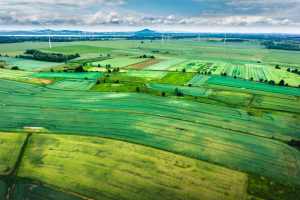Sustainable Agriculture was born out of a rejection of the industrial approach in favor of methods that promote natural ecological processes.
The industrial system can produce abundant crops cheaply but its effect on the ecology has been disastrous: erosion, depleted soil and water resources and deforestation are just some of the effects. Conventional agriculture also tends to involve more resources such as fossil fuels for chemical fertilizers, running irrigation sources, transportation and large amounts of water.
Methods of Sustainable Farming
Sustainable agriculture can encompass a wide range of techniques, including free-range, low-input, organic and biodynamic. An organic farm does not mean that it is automatically sustainable, especially if organic farming is carried out on a large scale to threaten the environment. Sustainable agriculture would ensure that a single area can produce food indefinitely. In order to achieve this, the farm has to withdraw no resources from the environment that cannot be replenished naturally, not make irreversible changes to the land, avoid pesticide use by using organisms that control crop pests and to integrate croplands with livestock grazing.
Considerations
 Sustainable farming has drawn its share of critics who claim that such a system produces lower crop yields than traditional agriculture. The debate on both sides has been lively and critics have lambasted sustainable agriculture as too simplistic. There have also been dire warnings that practicing sustainable farming wholesale could result in global food shortages. On the side, proponents of sustainable agriculture cite a United Nations study that organic and other sustainable farming methods would be necessary to feed future generations.
Sustainable farming has drawn its share of critics who claim that such a system produces lower crop yields than traditional agriculture. The debate on both sides has been lively and critics have lambasted sustainable agriculture as too simplistic. There have also been dire warnings that practicing sustainable farming wholesale could result in global food shortages. On the side, proponents of sustainable agriculture cite a United Nations study that organic and other sustainable farming methods would be necessary to feed future generations.
However, more scientists, experts and policy panels are suggesting that sustainable practices can feed more poor people and at the same time begin to repair the ecological damages caused by industrial agriculture. Studies by researchers have found that while sustainable farming generally produces lower crop yields the differences are less significant for certain crops.
Prospects for the Future
Achieving sustainable food security commonly may possibly be supported by the use of many different techniques, including hybrid systems. For underdeveloped countries, sustainable agriculture could be developed further. Decentralizing food production and using small scale farming may have the potential to make the system less at risk from climate shocks.


